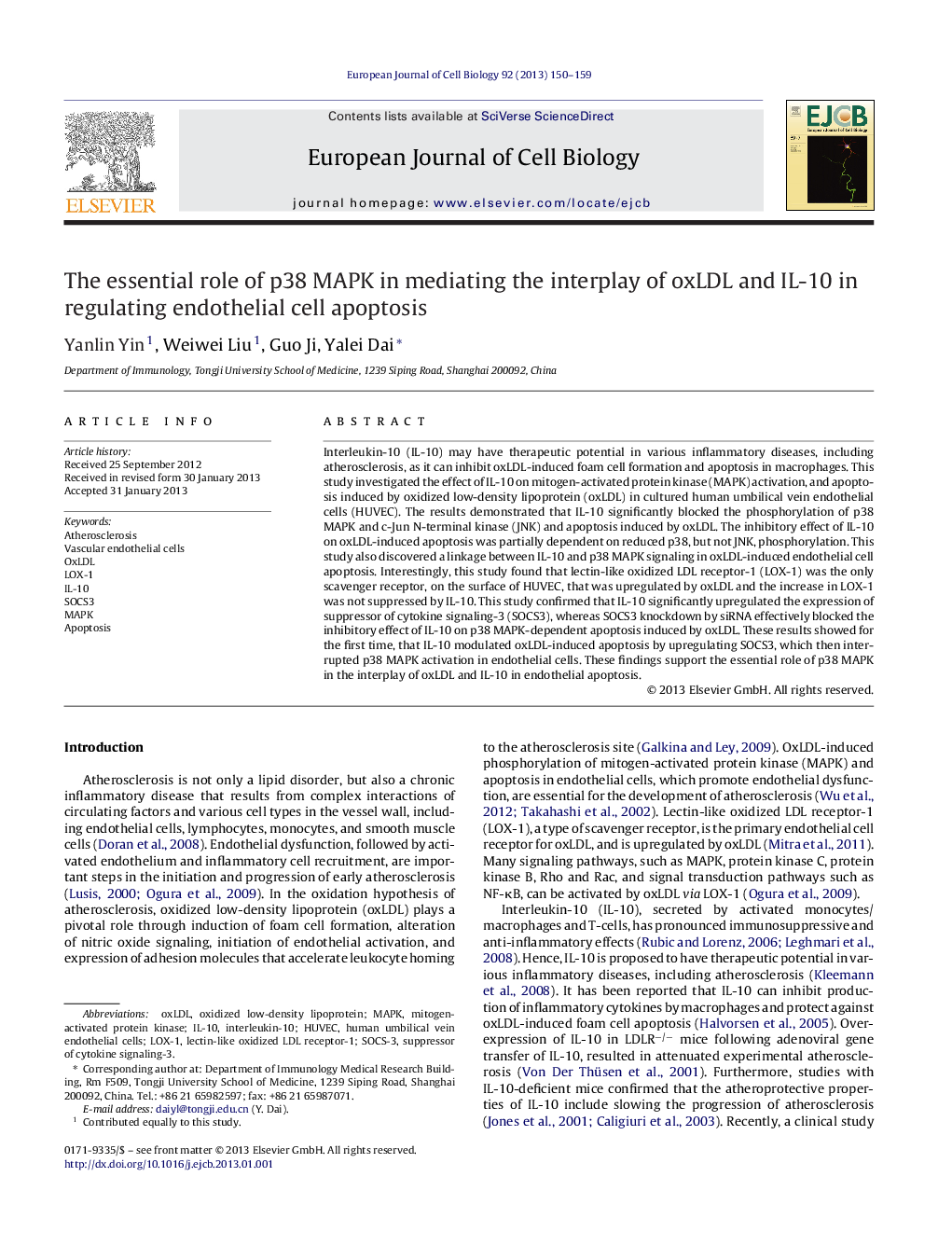| Article ID | Journal | Published Year | Pages | File Type |
|---|---|---|---|---|
| 2178409 | European Journal of Cell Biology | 2013 | 10 Pages |
Interleukin-10 (IL-10) may have therapeutic potential in various inflammatory diseases, including atherosclerosis, as it can inhibit oxLDL-induced foam cell formation and apoptosis in macrophages. This study investigated the effect of IL-10 on mitogen-activated protein kinase (MAPK) activation, and apoptosis induced by oxidized low-density lipoprotein (oxLDL) in cultured human umbilical vein endothelial cells (HUVEC). The results demonstrated that IL-10 significantly blocked the phosphorylation of p38 MAPK and c-Jun N-terminal kinase (JNK) and apoptosis induced by oxLDL. The inhibitory effect of IL-10 on oxLDL-induced apoptosis was partially dependent on reduced p38, but not JNK, phosphorylation. This study also discovered a linkage between IL-10 and p38 MAPK signaling in oxLDL-induced endothelial cell apoptosis. Interestingly, this study found that lectin-like oxidized LDL receptor-1 (LOX-1) was the only scavenger receptor, on the surface of HUVEC, that was upregulated by oxLDL and the increase in LOX-1 was not suppressed by IL-10. This study confirmed that IL-10 significantly upregulated the expression of suppressor of cytokine signaling-3 (SOCS3), whereas SOCS3 knockdown by siRNA effectively blocked the inhibitory effect of IL-10 on p38 MAPK-dependent apoptosis induced by oxLDL. These results showed for the first time, that IL-10 modulated oxLDL-induced apoptosis by upregulating SOCS3, which then interrupted p38 MAPK activation in endothelial cells. These findings support the essential role of p38 MAPK in the interplay of oxLDL and IL-10 in endothelial apoptosis.
